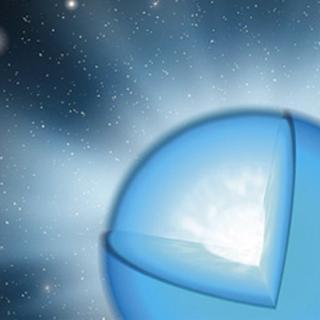Bibcode
ten Brummelaar, Theo A.; O'Brien, David P.; Mason, Brian D.; Farrington, Christopher D.; Fullerton, Alexander W.; Gies, Douglas R.; Grundstrom, Erika D.; Harkopf, William I.; Matson, Rachel A.; McAlister, Harold A.; McSwain, M. Virginia; Roberts, Lewis C.; Schaefer, Gail H.; Simón-Díaz, S.; Sturmann, Judit; Sturmann, Laszlo; Turner, Nils H.; Williams, Stephen J.
Referencia bibliográfica
The Astronomical Journal, Volume 142, Issue 1, article id. 21 (2011).
Fecha de publicación:
7
2011
Número de citas
19
Número de citas referidas
15
Descripción
The star HD 193322 is a remarkable multiple system of massive stars that
lies at the heart of the cluster Collinder 419. Here we report on new
spectroscopic observations and radial velocities of the narrow-lined
component Ab1 which we use to determine its orbital motion around a
close companion Ab2 (P = 312 days) and around a distant third star Aa (P
= 35 years). We have also obtained long baseline interferometry of the
target in the K' band with the CHARA Array which we use in two ways.
First, we combine published speckle interferometric measurements with
CHARA separated fringe packet measurements to improve the visual orbit
for the wide Aa,Ab binary. Second, we use measurements of the fringe
packet from Aa to calibrate the visibility of the fringes of the Ab1,Ab2
binary, and we analyze these fringe visibilities to determine the visual
orbit of the close system. The two most massive stars, Aa and Ab1, have
masses of approximately 21 and 23 M sun, respectively, and
their spectral line broadening indicates that they represent extremes of
fast and slow projected rotational velocity, respectively.
Proyectos relacionados

Propiedades Físicas y Evolución de Estrellas Masivas
Las estrellas masivas son objetos claves para la Astrofísica. Estas estrellas nacen con más de 8 masas solares, lo que las condena a morir como Supernovas. Durante su rápida evolución liberan, a través de fuertes vientos estelares, gran cantidad de material procesado en su núcleo y, en determinadas fases evolutivas, emiten gran cantidad de
Sergio
Simón Díaz